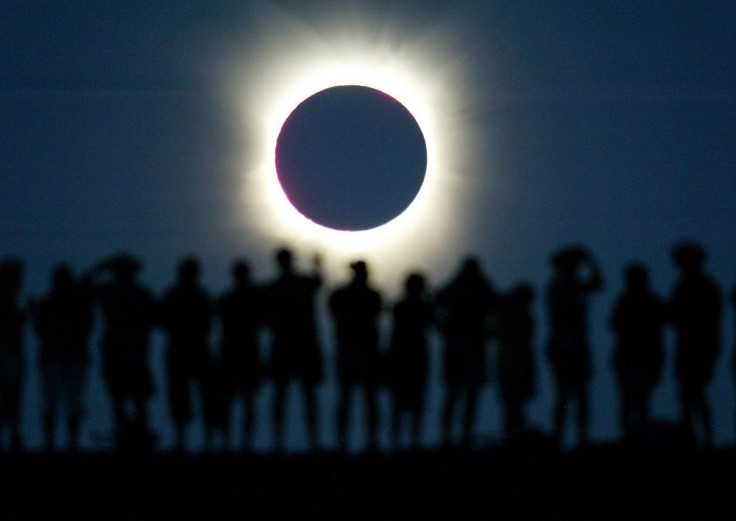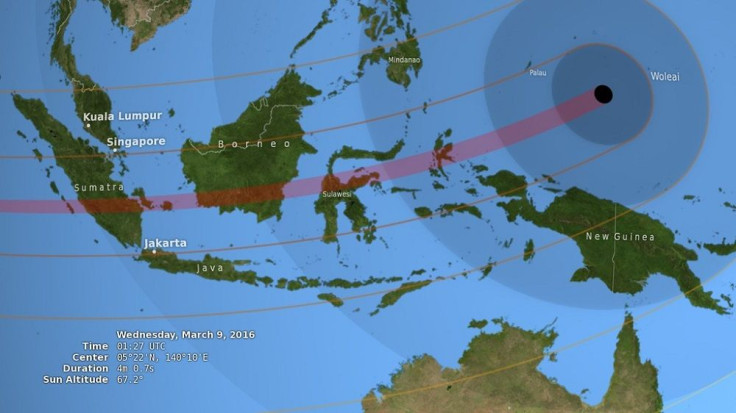NASA confirms a few minutes of darkness on March 9 as total solar eclipse hits Pacific Islands

Darkness would envelope the Earth on March 9. But it won’t be like the grim 15 days of darkness hoax in November.
The darkness would only be for a few minutes and only residents of some Pacific nations would witness the solar eclipse that day, reports Gizmodo. It would be the second new Moon for 2016 – the first being on Feb 8 that signaled the start of Spring Festival for billions of Chinese around the world.
On that day, the new Moon will sweep across the plane when Earth orbits the Sun, or the ecliptic plane. When the Moon passes in front of the Sun, it will cast a shadow on Earth, resulting in brief darkness. People unaware of the celestial event may be frightened and think it is end of the world, a month away from a failed cinematic prediction made 27 years ago.
According to the National Aeronautics and Space Administration (NASA), the solar eclipse would be seen only in the Philippines, Indonesia, Papua New Guinea, Guam and other Pacific islands with few inhabitants. The lunar shadow would be divided into two area, the umbra and the penumbra. Within the penumbra, only the Sun would be blocked and viewers would experience a partial eclipse.

Only people who live within the red streak behind the oval, the path of totality, would experience a total solar eclipse when the umbra passes over the area which would totally be dark. The duration of the solar eclipse varies based on the location, ranging from just over 2 minutes in eastern Indonesia to more than 4 minutes on Micronesia’s Woleai Atoll, reports NASA.
The next solar eclipse is on Aug 21, 2017.




















